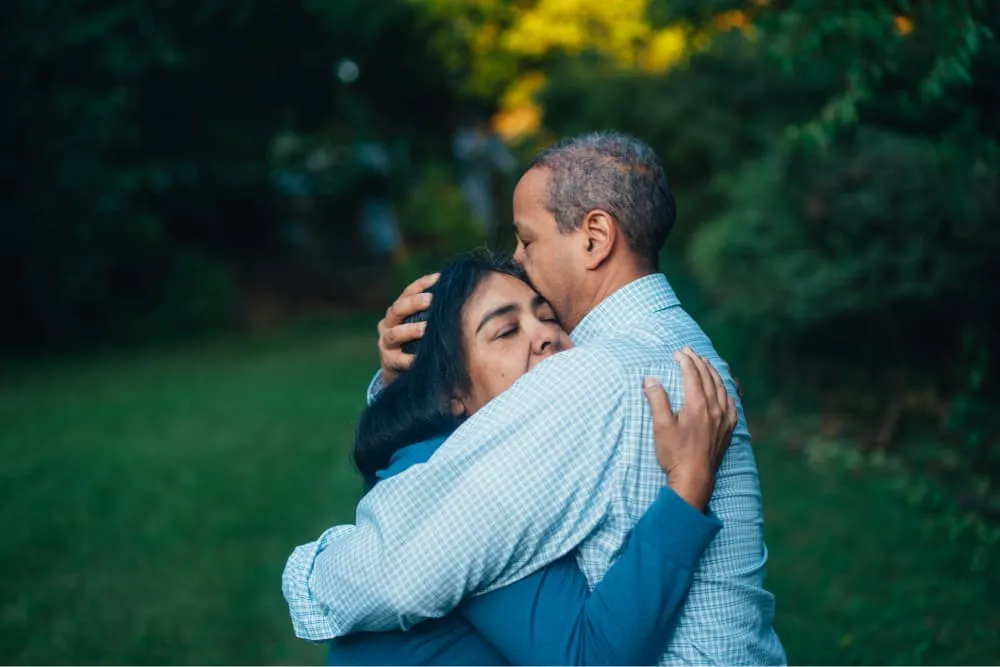Weight stigma and discrimination
Weight stigma is one of the most pervasive and damaging forms of systemic injustice that impacts individuals with eating disorders. Society often equates thinness with moral value, success, and beauty, while stigmatizing those who are in larger/fat (depending on the individual’s language preference) bodies. For patients with eating disorders, this stigma can exacerbate their fears of weight gain and reinforce harmful eating behaviors.
This weight-based discrimination is not limited to social interactions. It is often deeply embedded in healthcare systems, where individuals in larger bodies may be treated with less empathy, face biased medical assessments, or have their health concerns dismissed. For example, healthcare providers may attribute all health issues to a patient’s body size without thoroughly assessing underlying mental health or eating patterns, or they might struggle to recognize signs of an eating disorder in a patient who doesn’t match their stereotype of eating disorders. It’s not at all uncommon for patients to be reluctant to visit their primary care doctor to address the medical symptoms of their eating disorder due to their (sometimes well-founded) fears that everything will be blamed on their weight.
Clinical insight
Challenging weight stigma requires creating a treatment space where individuals are valued for their humanity, not their body size. As clinicians, it’s important to foster an environment where recovery is not equated with achieving a "normal" body size, but with restoring mental health and well-being.
Incorporating body acceptance approaches and anti-diet culture perspectives into treatment can help patients detach their self-worth from their body size and challenge the societal biases that reinforce eating disorders. At Within, patients can self-select into the Recovery at Every Size (RAES) therapy group. This is a space where anyone who identifies as fat or in a larger body can process their experience with others who understand what they’re going through.
Barriers to accessing care
Access to treatment for eating disorders remains a significant barrier, particularly for those from marginalized groups. Insurance coverage for eating disorder treatment can be limited, and the cost of intensive care, such as partial hospitalization programs (PHP) or residential treatment, is often prohibitively high. This financial barrier disproportionately affects people from low-income communities, people of color, and those without adequate health insurance.
Even when treatment is accessible, there is a lack of culturally competent care. Many treatment programs do not take into account the unique cultural, racial, or gendered experiences that shape an individual’s relationship with food and their body. For instance, people of color may experience additional trauma related to cultural stereotypes or microaggressions about their bodies. At the same time, 2SLGBTQIA+ individuals may face discrimination or a lack of understanding within the medical and mental health systems.
Clinical insight
To address these barriers, it's crucial to advocate for expanded access to treatment and work toward a more inclusive model of care. This means pushing for insurance policies that adequately cover eating disorder treatment and ensuring that programs are culturally responsive and trauma-informed. Creating spaces where patients from all backgrounds feel safe, heard, and validated in their experiences is essential for effective treatment.
Within the eating disorder field, several organizations seek to reduce barriers to care and ensure that all individuals receive the care they need. One of these, Project HEAL, works to place patients in treatment at low to no cost to themselves. Though this doesn’t solve the root of the issue, it makes a significant difference for the people who utilize the program.
Learn about Within's inclusive treatment programs
Call today Cultural and societal pressures
Systemic injustices also manifest in cultural and societal norms that reinforce harmful attitudes toward food, body image, and appearance. Media portrayals of "ideal" bodies, which are often thin and white, perpetuate unrealistic standards and create a sense of alienation for anyone who doesn't fit into this narrow mold. This is especially damaging to individuals from historically marginalized communities, including people of color, people with disabilities, and 2SLGBTQIA+ individuals, who may already feel invisible or devalued by mainstream culture.
Moreover, diet culture and the commercialization of weight loss (a $90 billion industry) have entrenched the idea that bodies should constantly be controlled, monitored, and altered. These societal pressures can influence people to develop disordered eating habits, even if they don’t meet clinical criteria for an eating disorder. They may also make it harder for people who are already struggling with an eating disorder to find acceptance and support for recovery.
Clinical insight
Addressing cultural and societal pressures involves challenging diet culture, promoting body diversity, and advocating for more inclusive representations of body types in the media. Clinicians can help patients recognize how these cultural narratives impact their mental health and encourage them to define beauty, health, and self-worth on their own terms. This involves not only individual therapy but also collective action to change the broader societal narrative around food and body image.
Empowering patients to do this is one of the primary goals of Within’s Liberation Lab therapy group. Each week, patients spend time learning how to use their lived experiences to bring about positive change in the broader community, with particular focus on eliminating diet culture.
Racial and ethnic inequities in diagnosis and treatment
Eating disorders have historically been misrepresented as a problem predominantly affecting white, affluent women, which has resulted in underdiagnosis and undertreatment in people of color. Racial and ethnic minorities, particularly Black, Indigenous, and Latino communities, may be less likely to receive an accurate diagnosis of an eating disorder or may have their symptoms dismissed as issues related to cultural practices or personal willpower. In some cases, patients may even be discouraged from seeking help due to a lack of representation in treatment spaces, leading to a significant delay in receiving appropriate care.
Moreover, there is a lack of research on how eating disorders manifest and are treated within these communities. This lack of culturally competent care means that traditional treatment approaches, often rooted in Eurocentric norms, may not be effective or relatable for patients from diverse backgrounds.
Clinical insight
Culturally competent care is essential in addressing these inequities. This includes not only diversifying treatment staff but also adapting therapeutic approaches to be more inclusive of patients’ cultural backgrounds, values, and lived experiences. Clinicians should engage in ongoing education and work to ensure that all patients—regardless of race, ethnicity, or background—have access to accurate diagnoses and effective, culturally relevant treatment options.
{{link-bank-two-column}}
Gender bias and intersectionality
Patients in eating disorder treatment programs are disproportionately female, but this doesn’t mean that eating disorders only impact women. In reality, these illnesses are not exclusive to any one gender. Transgender and non-binary individuals, for example, face unique challenges when it comes to body image, identity, and access to care. Many individuals in these communities experience a disconnect between their gender identity and societal expectations for how their bodies should appear, which can contribute to disordered eating behaviors.
Moreover, transgender and non-binary individuals may encounter discrimination or a lack of understanding from healthcare providers, making it difficult to find treatment that is affirming and respectful of their gender identity. They may also struggle with a lack of inclusive resources and support networks, which can isolate them during the recovery process.
Clinical insight
Clinicians must create a safe, inclusive space for individuals of all gender identities. This involves learning about the unique challenges faced by transgender and non-binary individuals in relation to eating disorders and body image, and advocating for gender-affirming care practices.
Incorporating gender-sensitive approaches into treatment not only helps improve outcomes but also validates the experiences of individuals who have historically been marginalized within the mental health system.
Social determinants of health
Social determinants of health, such as access to nutritious food, housing stability, economic security, and safe environments, play a significant role in the development, maintenance, and treatment of eating disorders. For individuals living in poverty or experiencing food insecurity, the lack of access to regular, balanced meals can exacerbate disordered eating behaviors. Additionally, chronic stress related to financial insecurity, housing instability, or discrimination can increase the likelihood of developing mental health conditions, including eating disorders.
For many patients, recovery involves not only addressing the psychological aspects of their eating disorder but also navigating the social and environmental barriers that contribute to their condition. Without addressing these systemic issues, long-term recovery can be difficult. Building supportive peer relationships is often an essential part of the recovery process for these individuals.
Clinical insight
To effectively support patients in recovery, clinicians must take a holistic approach that considers the broader social context. This includes helping patients access resources for food security, housing, and financial stability, as well as advocating for policy changes that address these inequities on a larger scale.
The standards of eating disorder treatment
Eating disorder treatment must go beyond individual psychological interventions to address the systemic injustices that influence patients' struggles. Weight stigma, lack of access to care, cultural pressures, racial and gender bias, and social inequities all contribute to the barriers that hinder recovery. As clinicians, we have an ethical responsibility to confront these injustices, advocate for equitable treatment, and support patients in navigating a complex, often hostile world. Only by addressing these systemic barriers can we create a truly inclusive and effective framework for eating disorder recovery that helps all individuals heal—regardless of their body size, race, gender, or socio-economic status.






















































